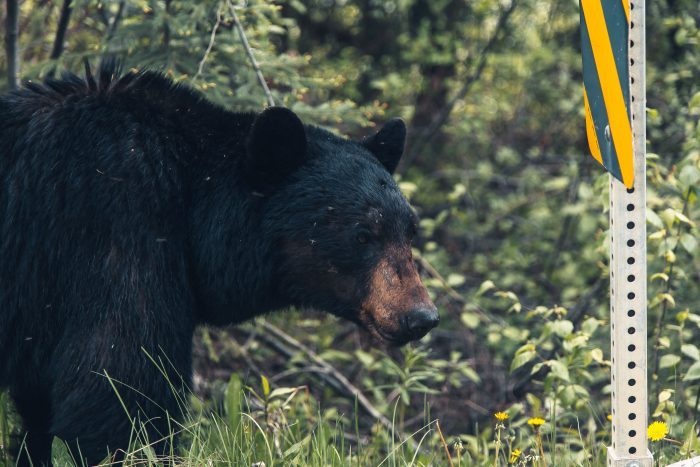During the spring, summer and fall months, bears roam the woods in West Virginia looking for food and they won’t hesitate to visit a messy campsite or yard to binge on leftovers and garbage. Once a bear gets a taste for human food, they can become more aggressive in searching it out, which often leads to them causing problems at camp areas and around homes.
The good news is that you can help prevent bears from becoming a nuisance by taking extra precautions by following the following Bearwise Basics:
- 1. Never feed or approach bears
- 2. Secure food, garbage and recycling
- 3. Remove bird feeders when bears are active.
- 4. Never leave pet food outdoors
- 5. Clean and store grills
- 6. Alert neighbors to bear activity
For more detailed tips, the following advice will help you prevent nuisance bear activity in your yard and around your campsite.
Keep your campsite and yard clean
Bears are intelligent, persistent and have an incredibly good sense of smell. By keeping a clean campsite and yard that’s free of food scraps and debris, you minimize the chance of a bear snooping around your tent at night for a midnight snack.
When it comes to camping, make sure you wash your pots, pans, grills, utensils and cooking area when they’re not in use. If possible, prepare your food 100 yards away from your campsite. You should also eat before dark because bears become active at dusk. And don’t sleep in the same clothes you wore while cooking and eating.
Secure your garbage, coolers or food sources
In the late spring and early summer when natural food is scarce in the woods, bears look for easily obtainable food sources. Unsecured garbage around your home and unattended food at campsites is an easy meal. Because of this, all food, including dog food, as well as trash and toiletries should be stored in vehicle or a bear-resistant container. Whatever you do, don’t keep food in your tent.
If you’re storing these items in a vehicle, place them in the trunk of your car or the cab of your truck and make sure the windows are shut and food is out of sight. If you’re camping in the backcountry, you can suspend these items in a tree. Just make sure it’s 10 feet off ground, four feet from the base of the tree and 100 yards away from your sleeping area. You can also look for campsites with existing suspension lines, such as sites in the Cranberry Backcountry, where bears are more prevalent.
If you see a bear, don’t feed or approach it
Nothing good has ever come from intentionally feeding or approaching a bear. So, if you see one around your home or while you’re camping, enjoy watching from a distance. Don’t leave out food to attract them closer.
If you’re concerned about crossing paths with a bear in the woods, carry bear spray, which is a non-lethal deterrent designed to stop aggressive behavior in bears. It’s similar to pepper spray, and produces a cloud of capsicum, which temporarily reduces the bear’s ability to breathe, see and smell, which should give you enough time to leave the area. If you’ve never used bear spray before, it’s best to familiarize yourself with how it operates by practicing with an inert canister. Bear spray doesn’t require extreme accuracy to be effective, often making it a better deterrent than a firearm.
Learn more about how and when to use bear spray.
Why you need to be BearWise
Bears are wild animals and we want them to stay wild and respect humans. So, be considerate and respectful of bears. Following these guidelines is for your own good and safety as well as the safety and well-being of bears.
Anywhere you go in West Virginia, you have a good chance of running into bear. So, as you enjoy hiking and camping adventures, keep these guidelines in mind and be conscious of how your activity affects bears and their habitat.
For more information about living with bears, visit www.bearwise.org or download and print these helpful BearWise fliers:
At-home BearWise basics
Outdoor BearWise basics
BearWise outdoor safety tips
BearWise vacation safety tips

